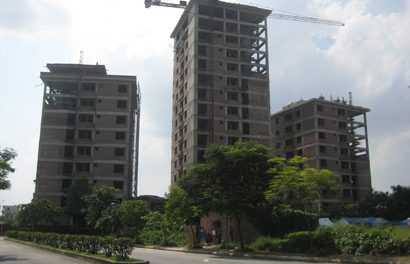How Does It Differ From Residential Real Estate?
In spite of the decline in real estate, commercial real estate is still a good investment because we continue to develop industry, technology, condos, offices, and build churches out of abandoned grocery stores. When looking at this you may be overwhelmed with how it differs from residential real estate. It is confusing—this area of real estate is nothing like residential real estate. The value is not determined by appraisals, comparables or “comps” in the traditional real estate sense. Residential real estate works on the emotions of the buyer, the value of the neighborhood, and how the property compares with other properties. However, when dealing with this kind of real estate you’re not just buying a property, you are buying a business. What this means is that in addition to buying commercial property you are buying the income stream associated with the building. Keeping this in mind, you could look forward to a secure future—but first you need to know how the commercial real estate game is played.
Three Basics Regarding How the Game is Played
There are some basic things to understand about commercial real estate investment. You need to know how to play the game. It is all about numbers and percentages. You also need to educate yourself on how to analyze the property and determine the value. The game has everything to do with the value of the property based on the income it will provide and the cost of maintaining that income for the future.
You Need to Know the Vocabulary
Here is a little homework to get you started. A quick Google search will give you more information on these terms and what they mean and why they are used. The basic concepts you must familiarize yourself with are as follows:
- Gross Income
- Effective Gross Income (EGI)
- Cash Flow
- Vacancy Rate
- Operating Expenses
- Net Operating Income (NOI)
- Debt Service
- Cash-on-Cash Return
- Capitalization Rate (Cap Rate)
You Need to Know Percentages
It is important to recognize that commercial real estate deals more in numbers and calculations than residential real estate because of the value based on the nature of the property you are investing in. If you really are serious about investing in this kind of real estate you will need to understand percentages—what percentages are acceptable for the vocabulary words we just listed. This includes how to calculate vacancy rates by determining what is considered a high percentage of vacancies in the area you are interested. For example, with apartment buildings over 100 units in your area, you may learn though experience that operating expenses are normally 45% of the gross income. What this means is that if you find a building with operating expenses of 55% of gross income, you may see an opportunity to eliminate some of these expenses in order to make the property operate more efficiently and profitably. Additionally, in terms of preferred rates of returns, cash on cash returns, and internal rates of returns, percentages play a part in how you structure the deal with your investors.
Internalize and Understand what the Numbers Mean
Once you have a basic understanding of the vocabulary, we want to make sure you will be able to connect the dots and understand how the numbers work. Looking at this for a moment, it is important to understand the difference between a cap rate of 5% in your marketplace as opposed to a property that has a cap rate of 10%. The more you pay for a given income stream, the lower the cap rate falls. We want to help you understand what operating expenses of 55% mean on a property as opposed to operating expenses of 25% on a similar property. That’s why this game is a numbers game.
Real Estate Calculations
Once you begin checking out commercial real estate and apply the numbers you will learn how to make real estate calculations on your investment, the amount of income flow, and how the future income flow is going to look. Keeping this idea in mind, you are ready to embark on a very lucrative journey.
Related Articles to Commercial Real Estate
COMMERCIAL REAL ESTATE TRUTH’S






